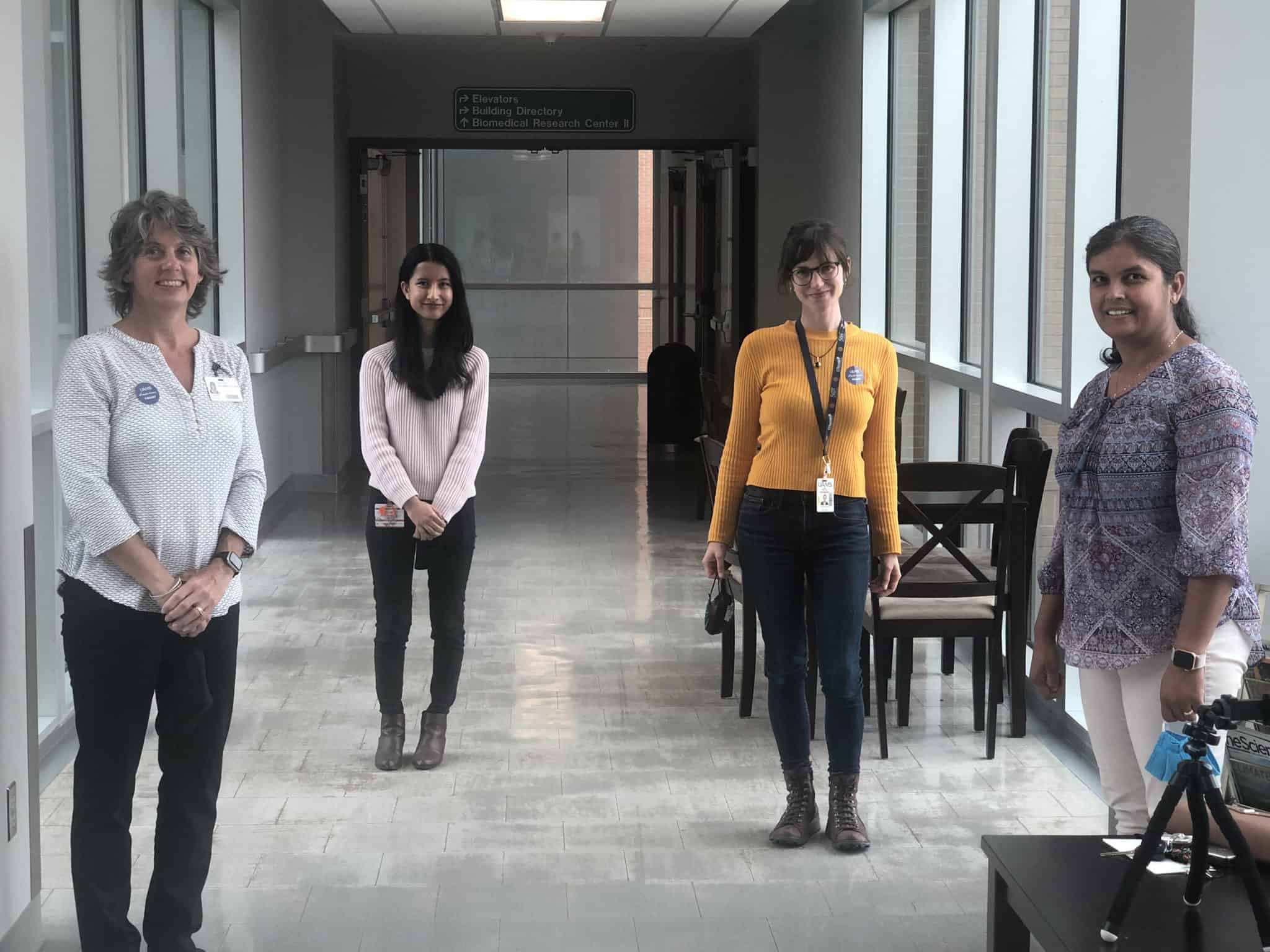UAMS Researcher Patents Tool to Study How to Improve Kidney Transplants
| A researcher at the University of Arkansas for Medical Sciences (UAMS) has patented a research tool she hopes will bring scientists one step closer to making more kidneys available for lifesaving transplants.
More than 100,000 people in the United States are on the waiting list each year for kidney transplants, according to the National Kidney Foundation. Thirteen people die each day waiting for a kidney transplant. Meanwhile, a 2018 foundation report found that 10 potential donor kidneys from deceased donors are discarded daily.
There are several reasons a donor kidney might be discarded, but many of them are subjective. There isn’t a clear-cut test to determine a donor kidney’s quality. In addition, kidneys from live donors tend to perform better than kidneys from deceased donors, but scientists aren’t entirely sure why.
UAMS researcher Lee Ann MacMillan-Crow, Ph.D., a professor in the Department of Pharmacology and Toxicology in the UAMS College of Medicine, hopes to help change that with her newly patented research enzyme assay.
Assays for enzyme activity help scientists target the specific thing they want to study, in this case, a protein called OMA1 that MacMillan-Crow believes may be a key to unlocking why some donor kidneys thrive and others don’t. There is strong evidence that mitochondrial dysfunction plays a fundamental role in in donor kidney failure. Mitochondria are so much more than just the energy powerhouse of the cell, they participate in both cell growth and death under different conditions, by expanding and dividing in a dynamic fashion.
“We’ve been working in my lab on improving outcomes for kidney transplants for many years and have published several papers showing that mitochondria are damaged during the cold storage process of transplantation,” MacMillan-Crow said. “In a paper from 2017, we narrowed it down to damage to several mitochondrial proteins involved with mitochondrial quality control, including the mitochondrial protease called OMA1.”
When MacMillan-Crow’s team reviewed the scientific literature, they were surprised to find out there was no way to directly assess OMA1 enzyme activity. So her team began working on development of a new assay. “We were lucky that our first attempt at developing our own assay for OMA1 worked,” MacMillan-Crow said. “The assay was made publicly available in academic journals for other researchers to use, but we wanted to continue improving it, and find industry partners who could make it more widely available. Thus, we needed to patent it.”
To pursue the patent, MacMillan-Crow worked with BioVentures, LLC, a technology licensing and commercializing entity that helps UAMS faculty take innovative medical ideas from the drawing board to the marketplace so that they have a faster impact on patient lives. With help from the experts at BioVentures, MacMillan-Crow is actively pursuing partnerships that will make the assay more widely available, so researchers around the world can better understand how OMA1 functions in diseases like kidney failure.
“It’s all about advancing the scientific knowledge in this area,” MacMillan-Crow said. “If we can get to a place where we better understand how to preserve donor kidneys for transplant or can identify with more certainty which donor kidneys will perform the best after transplantation, we’ll save lives, bottom line.”
UAMS is home to the only adult kidney transplant program in the state. MacMillan-Crow works closely with UAMS’ team of transplant surgeons and kidney disease specialists and is keenly aware of the issues affecting patients with advanced kidney disease.
In Arkansas, 689 people died of kidney disease in 2018, according to the Centers for Disease Control and Prevention. Arkansas ranked seventh highest in the nation for deaths per 100,000 people. One in three American adults are at risk for developing chronic kidney disease. Risk factors include diabetes, high blood pressure, heart disease, obesity and family history. African-Americans are three times more likely than whites, and Hispanics are nearly 1.5 times more likely to develop advanced kidney disease.
People with advanced kidney disease can extend their lives by receiving dialysis treatment, but transplantation remains the best treatment to prolong life and improve quality of life. Other UAMS efforts to improve care for kidney disease in Arkansas include growing its living donor program and opening additional transplant clinics. There are now two in Little Rock and one in Fayetteville. Becoming a living kidney donor is a lifesaving gift. For more information, visit UAMShealth.com/organ-transplant-information/living-donor.
UAMS is the state’s only health sciences university, with colleges of Medicine, Nursing, Pharmacy, Health Professions and Public Health; a graduate school; a hospital; a main campus in Little Rock; a Northwest Arkansas regional campus in Fayetteville; a statewide network of regional campuses; and eight institutes: the Winthrop P. Rockefeller Cancer Institute, Jackson T. Stephens Spine & Neurosciences Institute, Harvey & Bernice Jones Eye Institute, Psychiatric Research Institute, Donald W. Reynolds Institute on Aging, Translational Research Institute, Institute for Digital Health & Innovation and the Institute for Community Health Innovation. UAMS includes UAMS Health, a statewide health system that encompasses all of UAMS’ clinical enterprise. UAMS is the only adult Level 1 trauma center in the state. UAMS has 3,485 students, 915 medical residents and fellows, and seven dental residents. It is the state’s largest public employer with more than 11,000 employees, including 1,200 physicians who provide care to patients at UAMS, its regional campuses, Arkansas Children’s, the VA Medical Center and Baptist Health. Visit www.uams.edu or uamshealth.com. Find us on Facebook, X (formerly Twitter), YouTube or Instagram.###
